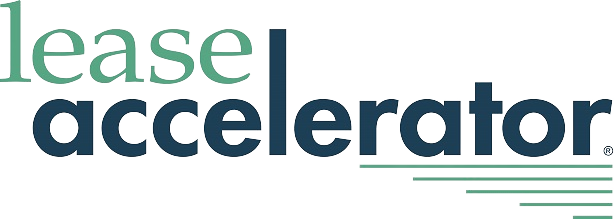LeaseAccelerator turns to Docmosis for reliable and scalable document generation.
Background
LeaseAccelerator is a Software as a Service (SaaS) company which operates within the niche area of enterprise lease accounting. Its cloud-based software solution assists companies in accounting for all their leased assets which can encompass IT and data center equipment, vehicles and real estate.
LeaseAccelerator generates a large number of customized leasing contracts, forms and reports required to serve the needs of their clients, who are both lessees and lessors.
Founded in 2003, LeaseAccelerator is regarded as a pioneer in the leasing software domain. Back then, its CEO, president and founder, Michael Keeler recognized that leasing was one of the most poorly managed financial processes in Fortune 500 companies and began developing the world’s first software application to automate the end-to-end business processes for Enterprise Lease Management.
After a record year of growth in 2017 which saw a tripling of its revenues and a quadrupling of its customer base, the focus for US-Based LeaseAccelerator now lies in furthering its international expansion. In recognition of its growing customer base and market position, Business and Technology online publication, The Silicon Review named LeaseAccelerator among the “50 Innovative Companies to Watch in the Year 2018.”
- Reports | Statements
- Contracts | Agreements
- Forms | Certificates
“We started in January, completed the trial by March and in production by June. It was crazy simple..”
The Problem
From the beginning, LeaseAccelerator had experimented and struggled with three well-known reporting solutions in order to generate PDF documents – Actuate, Brio, and Crystal Reports. Jonathan Crawford, CTO at LeaseAccelerator, describes one of the reporting tools as “difficult and clunky,” while another was “counterintuitive at every step.” The third option even struggled with the volume of data produced in reports.
In 2013, after years of dealing with a particularly demanding client, the LeaseAccelerator software team knew they had to invest in finding more suitable tool for their reporting and document generation needs. The client had in excess of 80 templates; planned on adding many more, and was requesting frequent changes, which could only be performed by software engineer or report specialist.
The LeaseAccelerator team needed to reduce the hours spent each week keeping up with the requested changes. Jonathan claims, “There were many hours spent each week on changes. That was time that could have been better spent fixing bugs or implementing critical enhancements. It was opportunity cost as much as anything else.” Jonathan also foresaw the benefit in shifting to a model where the clients themselves could manage the updates of their own templates.
Jonathan foresaw the benefit in shifting to a model where the clients themselves could manage the updates of their own templates.
The Solution
On the same day that Jonathan activated the trial version of Docmosis Cloud, he sent an email to his technical team, stating he was “very close” to successfully generating a leasing contract as a PDF document. Jonathan recalls, “it was remarkable and exactly what was advertised.”
Subsequent tests supported his initial reaction. His team discovered it was trivial to generate the XML payload needed to send to the Docmosis Cloud. As a company with clients across the globe, LeaseAccelerator tested a Chinese version of a Request for Proposal template which showed Docmosis to be Unicode compliant with the capability to handle multiple languages.
The decision by LeaseAccelerator to choose the cloud version of Docmosis was partially because their initial volumes did not justify on-premise and they weren′t certain of what their future volume would be. From a cash flow perspective, the monthly subscription pricing allowed LeaseAccelerator to “spread out the cost” whilst matching it with its growing client revenue.
During the implementation process, the LeaseAccelerator team logged only two request tickets with the Docmosis support team. “We had very little need for Docmosis support going through this process,” says Jonathan. “We started looking in Jan of 2013, had completed the trial by March and Docmosis was being used in production by June. It was crazy simple.”

The Result
By 2018, LeaseAccelerator’s clients were generating 150,000 pages per month from around 54,000 separate documents. In terms of scalability, stability and reliability, Jonathan believes that Docmosis has been more than satisfactory, noting that, “Five years in, we have absolutely no pressure to switch to a different reporting solution.”
As part of the LeaseAccelerator product, their clients now receive a set of Microsoft® Word templates that they are free to format any way they wish. “As long as they′re not messing with the data tags, they can change the boilerplate and the formatting all they like – and they do,” says Crawford.
By clients having the means to tailor these templates to their specific requirements, there is a huge time and cost saving to the LeaseAccelerator software team. The team can then channel their energies into more important tasks rather than maintaining report and document templates for their clients. Apart from the “dramatic headache savings”, Jonathan claims, “the trade-off is a fully loaded six-figure salary as opposed to the subscription fees we pay for Docmosis”.
Jonathan jokes that “we had to work our way through the alphabet to find a decent reporting solution: Actuate, Brio, Crystal Reports. We tried the ABCs of reporting, and they all failed. Docmosis gave us the missing component for our document generation solution.”







